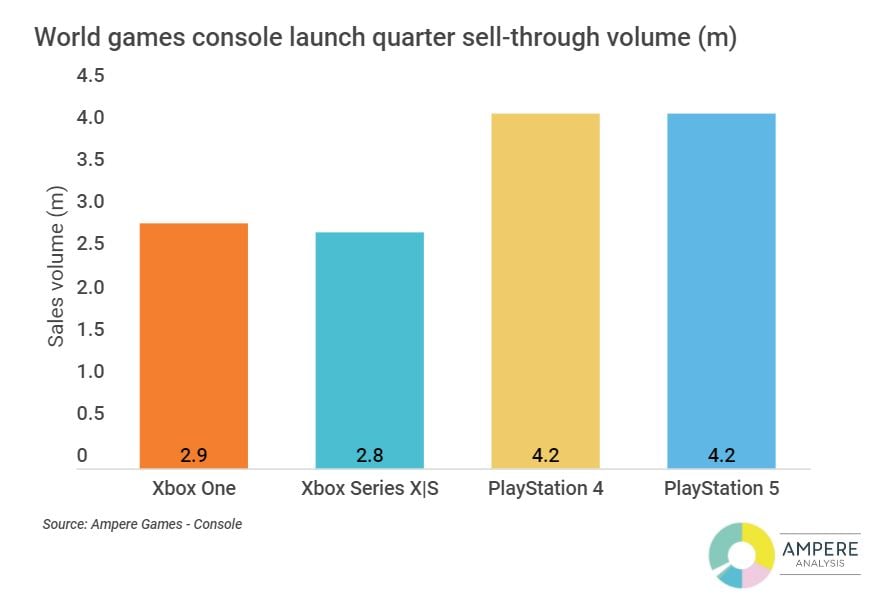Is Reform UK The Right Choice For British Farmers?

Table of Contents
Reform UK's Stance on Agricultural Policy
Reform UK's agricultural policy is largely built on a platform of deregulation and a significant reduction in government intervention. While they haven't published a detailed, comprehensive agricultural manifesto, their stated aims suggest a move away from the current system of subsidies and towards a more market-driven approach. This contrasts sharply with many other parties who advocate for continued, albeit potentially reformed, support for farmers.
- Specific policy proposals regarding farming subsidies: Reform UK advocates for a significant reduction, if not complete elimination, of direct payments to farmers. They argue that these subsidies distort the market and create inefficiencies. Instead, they propose a focus on supporting innovation and competitiveness within the agricultural sector.
- Analysis of their position on environmental regulations and their impact on farming practices: Reform UK generally favors deregulation, suggesting a lessening of environmental regulations impacting farming. This stance is controversial, with concerns raised about the potential negative environmental consequences and the impact on the UK's commitment to net-zero targets. They may argue that farmers should be free to adopt environmentally sustainable practices based on market demand, rather than being bound by regulations.
- Details on their proposed trade policies and how they might affect British farmers' access to markets: Reform UK promotes a more liberal approach to international trade, advocating for the removal of trade barriers and the pursuit of free trade agreements. This could potentially open up new export markets for British farmers but also increase competition from cheaper imports. The impact on specific sectors would need further analysis.
Comparing Reform UK to Other Parties
Understanding Reform UK's stance requires comparing it to the established parties. While the Conservatives have historically supported agricultural subsidies, their approach has evolved post-Brexit. Labour, meanwhile, often emphasizes support for farmers and rural communities but may differ on the specifics of subsidy schemes and environmental policies. The Liberal Democrats generally lean towards a more environmentally focused agricultural policy, often prioritizing sustainable farming practices.
- Key differences in their approaches to farming support: The Conservatives offer a blend of direct payments and market-based support, while Labour may favor a greater degree of direct support. Reform UK stands apart by advocating for a minimal government role. The Liberal Democrats would likely favor support tied to environmental performance.
- Analysis of each party's position on trade deals and their potential impact on the agricultural sector: The Conservatives, while championing free trade, have also sought to secure favorable trade deals to protect domestic farmers. Labour and the Liberal Democrats generally express a more cautious approach to trade, aiming to balance market access with the protection of domestic agriculture. Reform UK's free-market approach would likely lead to the most significant changes in trade relationships for the agricultural sector.
- Comparison of their environmental policies and how they affect farming practices: Labour and the Liberal Democrats generally prioritize stronger environmental regulations, potentially influencing farming practices through incentives and requirements. The Conservatives have a mixed record on environmental policy concerning agriculture, while Reform UK's deregulatory stance could lead to reduced environmental protections.
The Views of British Farmers on Reform UK
Gathering definitive data on British farmer opinion on Reform UK is challenging. Dedicated polls specifically targeting farmers' views on the party's agricultural policies are currently scarce. However, anecdotal evidence suggests a range of opinions. Some farmers may be attracted by the promise of deregulation and reduced bureaucracy, while others may be concerned about the potential loss of subsidies and the lack of environmental protection.
- Results of surveys or polls showing farmer support for Reform UK (if available): At this stage, comprehensive public polling data specifically on farmer sentiment towards Reform UK's agricultural policies is limited. Further research would be needed to obtain a clear picture.
- Quotes from farmers expressing their views on the party's policies: Collecting and sharing farmer testimonies would offer valuable insights. These could be found through agricultural publications, online forums, or direct interviews.
- Discussion of any potential alliances or endorsements between Reform UK and farming organizations: To date, no major farming organizations have openly endorsed Reform UK, reflecting the uncertainty surrounding their agricultural policy.
Potential Benefits and Drawbacks of Voting Reform UK for Farmers
Weighing the potential benefits and drawbacks of voting for Reform UK requires careful consideration.
- Potential benefits: Reduced bureaucracy, a more competitive market, and the potential for increased freedom in farming practices are potential advantages for some farmers.
- Potential drawbacks: The loss of crucial subsidies, increased vulnerability to market fluctuations, and the potential weakening of environmental protections present significant risks. The lack of detailed policy proposals adds to the uncertainty.
- Consider the long-term implications of voting for Reform UK: The long-term consequences of a shift towards a largely unregulated agricultural market are complex and uncertain. This could lead to both opportunities and unforeseen challenges for British farmers.
Conclusion
Determining whether Reform UK is the right choice for British farmers is complex. Their emphasis on deregulation and minimal government intervention presents both potential benefits and significant risks. While some farmers might appreciate reduced bureaucracy, the potential loss of subsidies and the uncertainties around environmental regulations pose serious concerns. The lack of clearly defined agricultural policies further complicates the assessment. The current agricultural landscape, marked by Brexit's impact and volatile markets, demands careful consideration of all options. Make an informed choice: research Reform UK and other parties' agricultural policies before you vote. The future of British farming depends on it.

Featured Posts
-
 Christina Aguilera Has She Had Plastic Surgery Fan Reactions Explode
May 03, 2025
Christina Aguilera Has She Had Plastic Surgery Fan Reactions Explode
May 03, 2025 -
 Liverpools Contract Standoff With Mohamed Salah Latest News And Updates
May 03, 2025
Liverpools Contract Standoff With Mohamed Salah Latest News And Updates
May 03, 2025 -
 Macron Remonte Par Sardou Le Diner Ou Ca Vient Du Ventre
May 03, 2025
Macron Remonte Par Sardou Le Diner Ou Ca Vient Du Ventre
May 03, 2025 -
 Retro Office Chic Selena Gomezs High Waisted Suit
May 03, 2025
Retro Office Chic Selena Gomezs High Waisted Suit
May 03, 2025 -
 Comparing Ps 5 And Xbox Series X S Sales Performance In The United States
May 03, 2025
Comparing Ps 5 And Xbox Series X S Sales Performance In The United States
May 03, 2025
